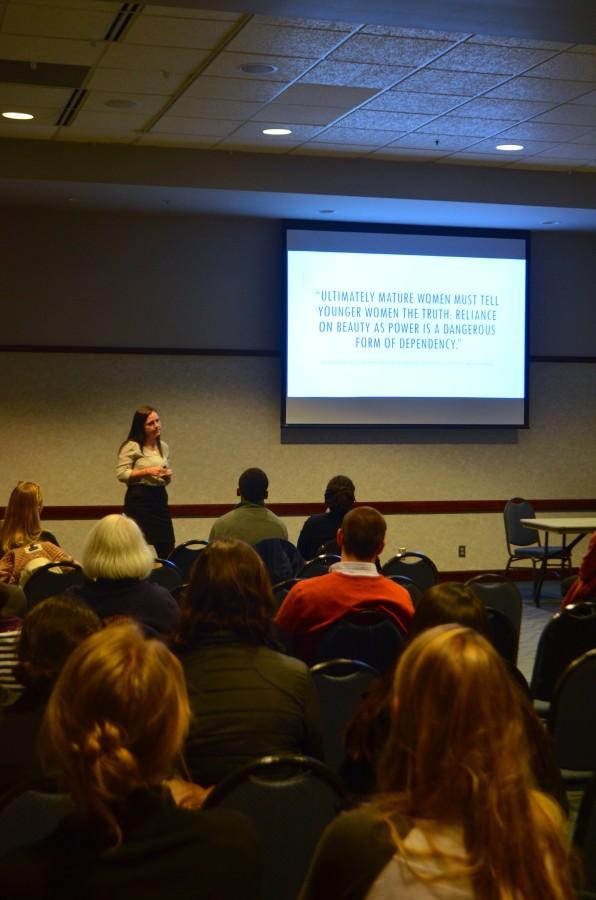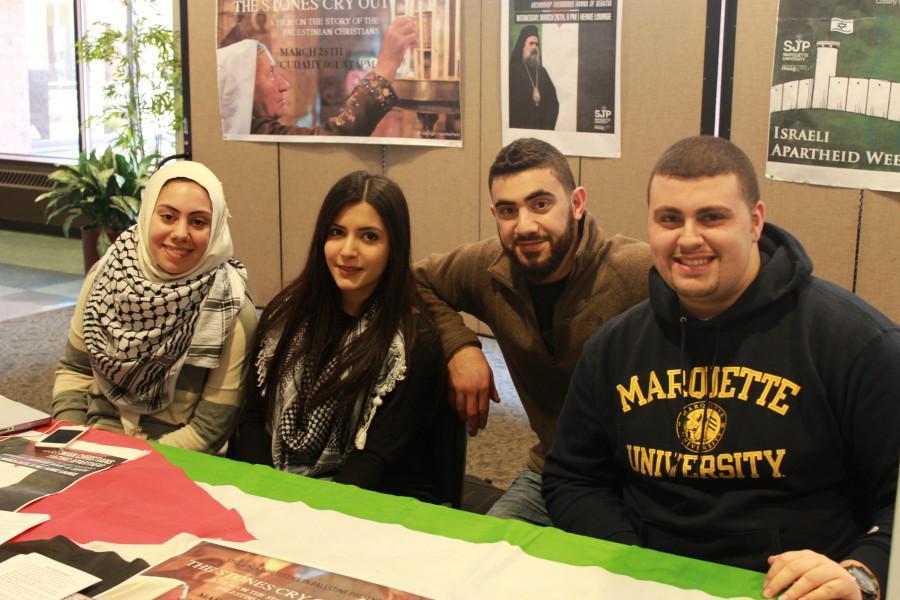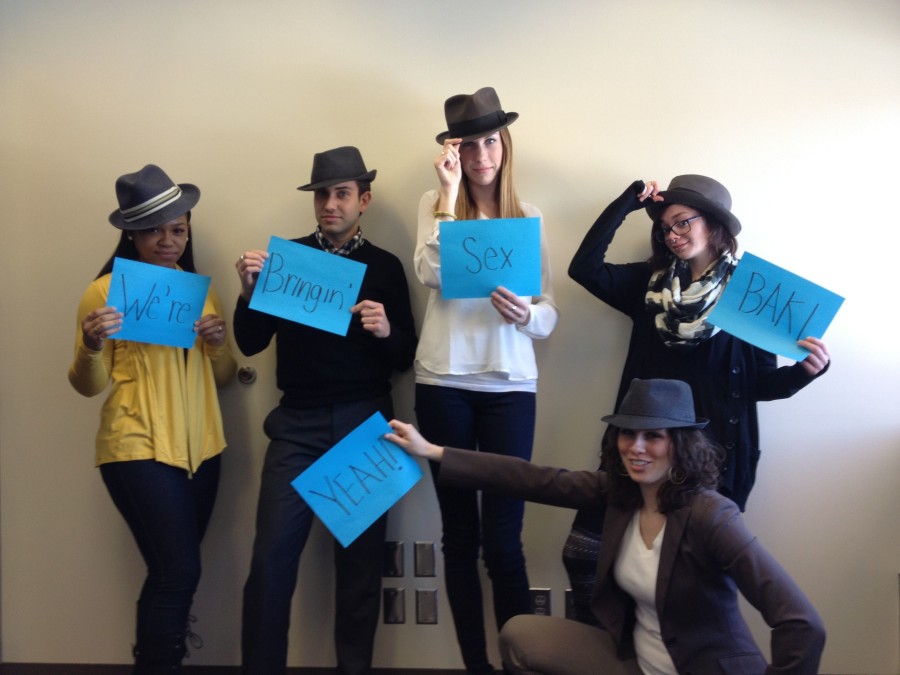The 2014 Women’s and Gender Studies fellows presented their research findings Wednesday, covering various topics of social justice, including rape, objectification and attitudes of Marquette students.
The presentations, held in the Alumni Memorial Union, were from four fellows who received grants from the College of Arts & Sciences and the Office of the Provost. The fellowship started in 2010, and there have been annual presentations since then.
Samantha Kemp, a senior in the College of Arts & Sciences, worked with psychology professor Ed de St. Aubin for her research project on sexual behaviors and attitudes among 1,136 total students from Marquette and the University of Wisconsin-Milwaukee. She looked at the concept of gender conformity, which involves conforming to the traditional gender role a person is ascribed to at birth.
“(Marquette students) slightly agree that Marquette is accepting of gender non-conformity,” Kemp said. “(Marquette) students think there could be a little bit of work done with sexual violence on campus.”
Kemps said her research found male Marquette students have the highest level of anti-gay and anti-lesbian attitudes, in addition to the highest level of rape myth acceptance.
The perceived Marquette party culture was also researched, and Kemp received and coded anecdotal accounts of under the influence sexual experiences at campus parties. From those anecdotal accounts, Kemp said 65.3 percent of students expressed negative sentiments after the incidents, while 8.6 percent expressed positive sentiments afterward.
Before Kemp, the first presentation was from Elena Fransen, a senior in the College of Arts & Sciences, who took a summer trip to South Africa, identified by Interpol as the “rape capital of the world” to conduct her research. Her findings centered on South African “corrective” rape, that’s performed with the objective of reversing homosexuality, and how it’s linked to apartheid.
Same-sex marriage is legal in South Africa, but Fransen said “that’s not the reality” of acceptance in South African culture. That culture uses the term LGBTI, with the “I” standing for intersex, more than LGBTQ. Identifying as LGBTI is viewed as not fitting with the South African identity.
The rate of rape in South Africa is continuously on the rise after apartheid, Fransen said, who said corrective rape is both sexual violence and a hate crime. Fransen said she saw how people rape others to exert power after being powerless during apartheid.
The next presentation came from Margaret Wojtulewicz, a senior in the College of Arts & Sciences, who conducted her research on objectification and how it relates to eating disorders.
“You whistle at a dog – you don’t whistle at people,” Wojtulewicz said about cat calling and why she said it is not a way to complement someone.
Wojtulewicz worked with Marquette students in 20 interviews and a six-person focus group. She said she found that reliance on beauty as a form of power exists.
“(Study participants) said wearing makeup and a nice outfit means you’re worthy that day,” Wojtulewicz said.
In addition, Wojtulewicz said female objectification is normalized in Milwaukee and women have started objectifying themselves as a result.
The final presentation came from Jeremy Jones, a senior in the College of Arts & Sciences. Jones’ research focused on obesity and African American women. He said he found that social support is provided through communities of African American women, in religious and family forms and that social support provides overweight women the motivation to live healthy.
Editor’s note: Elena Fransen is also the Executive Opinions Editor for the Wire.





